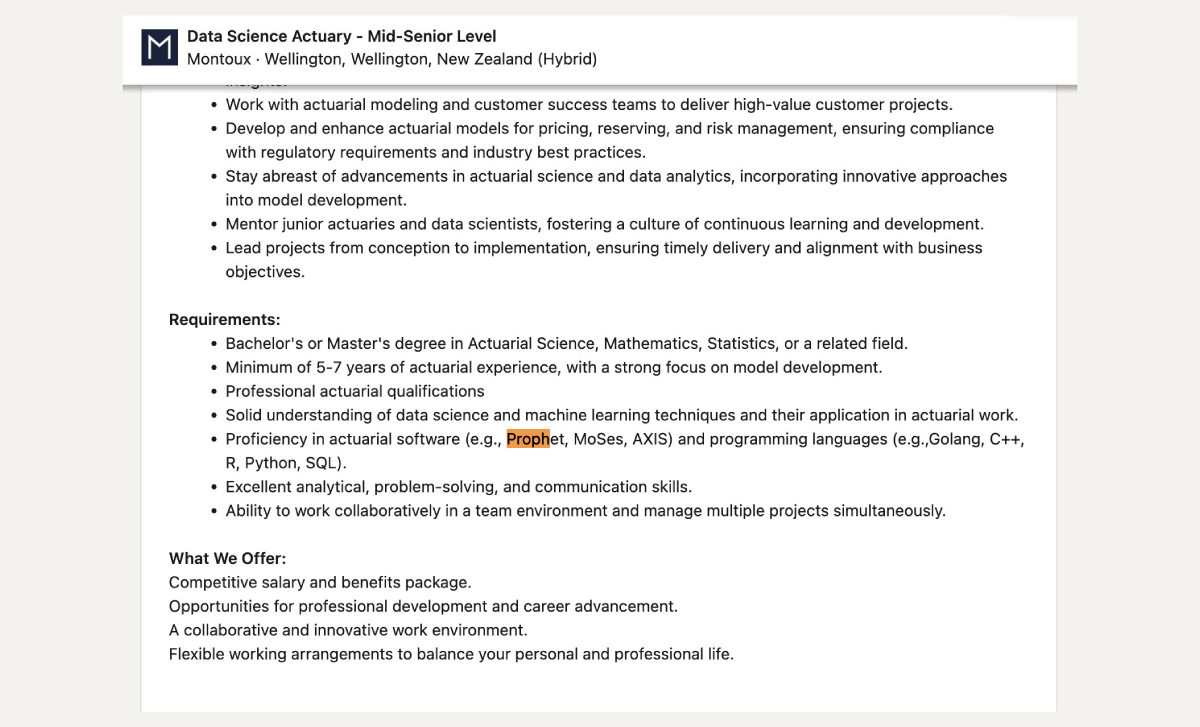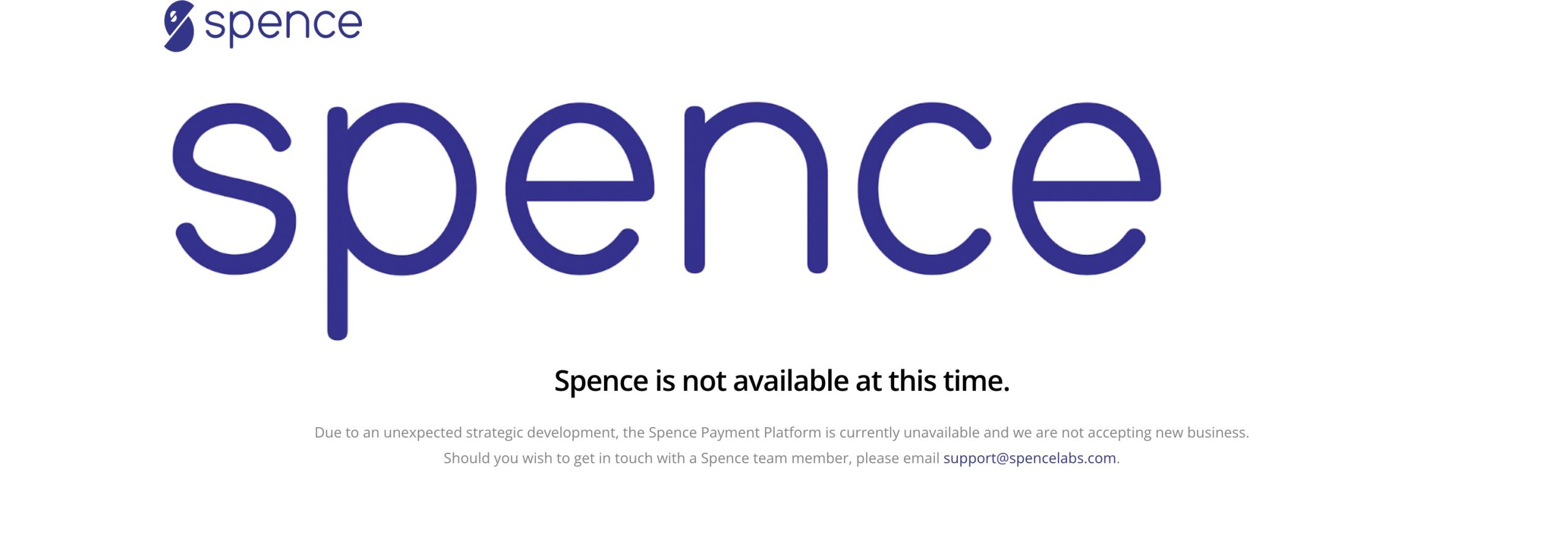Montoux liquidates amid FIS lawsuit allegations
Montoux , a New Zealand-based actuarial and AI technology company, entered liquidation after being served with a lawsuit by corporate giant Fidelity Information Services (FIS).
The liquidation was initiated by the company’s shareholders.
Founded in 2012, Montoux operated in the US, New Zealand, Australia, Hong Kong, and the UK, offering an actuarial automation platform that used generative AI to streamline the migration and development of actuarial models.
According to the company, actuaries could use the platform to inquire about variables used in calculating premiums and benefits or request the inclusion of additional risk factors for policyholder databases and premium tables. The platform also supported more complex tasks, such as optimizing capital allocation by directing the AI to allocate funds for the best possible returns.
In July 2019, the company announced a $10.5 million funding round, supported by firms across the APAC region and former life insurance executives.
On November 1, 2024, FIS filed a lawsuit against Montoux Inc. and Montoux Ltd. in Delaware, accusing them of trade secret misappropriation and interference with contracts. FIS alleges that Montoux copied its proprietary actuarial software, Prophet, using a “Model Replication Module” to replicate FIS’s code and enable migrations from FIS systems to Montoux’s platform.
FIS also claims Montoux induced its customers to breach agreements by providing access to Prophet’s proprietary code. Additionally, Montoux allegedly used unique variable names, proprietary to Prophet, in its marketing materials, including “DISC_PROF_A,” further suggesting unauthorized access to Prophet’s code.
FIS supported its case with exhibits highlighting Montoux’s job postings, which required experience with actuarial modeling software, such as Prophet, AXIS, and MG-ALFA.

A query shows that non-FIS companies also require proficiency in actuarial software. For instance,
Pacific Life
has an opening for an Actuary Prophet Developer, stating: “We’ll rely on you to lead development and peer review changes made by other developers and act as an internal Prophet expert for your colleagues.” Similarly, New York Life has a posting for Corporate Vice President – Senior Domain Architect, requiring knowledge of corporate systems such as ERP (SAP, Ariba), actuarial modeling platforms (FIS Prophet, Moody’s AXIS Enterprise Link), HR systems (SuccessFactors), and risk systems. Note that New York Life transitioned to FIS Prophet starting in 2014, and various job postings by Pacific Life strongly suggest it is also an FIS client.
FIS has a history that traces back to 1968, when it was founded in Little Rock as Systematics, a data processing company. In 1990, Systematics was acquired by Alltel Corporation in a stock swap valued at $528 million and subsequently – in 1995 – renamed Alltel Information Services (AIS).
In 2003, Fidelity National Financial, then a title and mortgage company with over $5 billion in revenue, acquired AIS. The company relocated from Santa Barbara, California, to Jacksonville, Florida, and renamed AIS to Fidelity Information Systems (FIS).
Twelve years later, on November 30, 2015, FIS completed its acquisition of SunGard, which had acquired Prophet from Deloitte & Touche LLP-UK in 2005. Prophet is the software at the center of this lawsuit.
By 2005, Prophet was used by over 5,000 users across 500 companies in more than 50 countries. Today, more than 10,000 users across 850 customer sites in over 65 countries use Prophet. Its parent company, FIS, was unsuccessful in rebranding it as the FIS Insurance Risk Suite.
The liquidation of Montoux led to the loss of 30 jobs and unfolded as a classic David vs. Goliath story.
Sarah (Cook) Sandfor, the former Group Finance Manager at Montoux, shared on LinkedIn that it has been a really sad end to the year for her former employer. “To put into perspective the imbalance of power and resources at play, FIS has ~55,000 employees, ~US$14bn of revenue, operates in over 130 countries and serves more than 20,000 clients worldwide (including many, if not all, of the big banks in NZ). Montoux on the other hand, has less than 20 employees and was backed by Angel investors. This appears to be an example of a corporate bully using its financial and legal resources to crush a much much smaller, yet more innovative competitor.”
Ben Kepes, a commentator, wrote “Prophet, part of FIS’s Insurance Risk Suite, is a juggernaut in the actuarial world. With origins dating back to the 1980s, the software has become the default choice for insurers in New Zealand and Australia, markets where FIS enjoys near-total monopoly. But Montoux’s tools attracted several high-profile Prophet customers and posed a growing threat to FIS’s dominance. Hence the big player is being roused out of its slumber. Alas, not to innovate, but to litigate.”
Trevor Dickinson, “a small shareholder” in Montoux, shared on LinkedIn: “Is this yet another example of a corporate heavyweight using the U.S. legal system to stifle a smaller, innovative competitor with superior technology that challenges its legacy offerings? Reports indicate this may not be the first time FIS has employed such tactics. Could this case even warrant a U.S. antitrust investigation?”
Looking back, it was Haven Life that supported Montoux during its early entry into the US market. Haven Life, however, is now out of business. Other publicly disclosed clients and partners included Cigna, MetLife, AIA, TAL (a subsidiary of Dai-ichi Life), and Deloitte. Overall, Montoux reached around 11 clients globally. Most customers outside the US were FIS Prophet users, though none in the US used Prophet.

Looking ahead, FIS finds itself entangled in another legal battle, this time with Spence Labs, a Chicago-based fintech startup that specialized in payment processing solutions for the cannabis industry. Spence was once valued at ~$25 million but has since been forced to terminate its employees and wind down operations due to FIS’s alleged misconduct.

On August 23, 2023, Spence Labs filed a lawsuit against FIS and its subsidiary, Worldpay , alleging that FIS engaged in a “catch and kill” tactic. According to the lawsuit, FIS expressed interest in a partnership, inducing Spence to share proprietary information and reallocate resources, only to later abandon the collaboration.
The complaint claims that after extensive negotiations and due diligence, FIS publicly announced a partnership with Spence to develop financial technology for legalized cannabis dispensaries. However, FIS later withdrew from the partnership, citing a previously undisclosed policy against engaging with the cannabis industry. This withdrawal, Spence alleges, led to the company’s financial collapse.
“Yet in the midst of Spence’s substantial efforts—and only after Spence shared its blueprints to the cannabis industry and introduced FIS to many key industry players—FIS began its slow and evasive exit towards repudiation. At first, FIS tried avoiding Spence with some of Spence’s emails going unanswered for weeks. Then, after persistent follow-up, Spence finally received confirmation from an FIS Senior Vice President that, despite the prior silence, there were no internal “macro issues” to report. Relying on this statement, and others like it, Spence continued to work towards the partnership, including building out the partnership products that FIS promoted to the market. Unfortunately, FIS honored neither its assurances nor its representations to Spence.”
On October 23, 2023, FIS filed a motion to dismiss Spence’s amended complaint, challenging the legal sufficiency of its claims. On August 13, 2024, Judge Steven C. Seeger issued a Memorandum Opinion and Order, granting the motion in part and denying it in part. While some claims were dismissed, others were allowed to proceed, keeping the case alive.

All in all, there are no similarities between the two lawsuits, except for FIS being at the center and two unrelated startups likely wishing they had never crossed paths with FIS.




